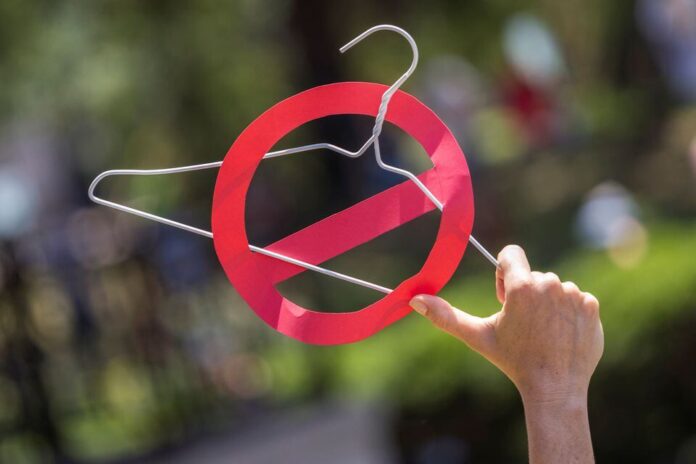As the political landscape in the United States continues to evolve, the Republican Party’s stance on abortion has become a focal point of national discourse. With the possibility of Donald Trump returning to office, there is growing concern among reproductive rights advocates about the implementation of sweeping abortion restrictions. These proposed measures are said to go far beyond the proposals for a national ban or the laws already enacted in conservative states across the country, drawing comparisons to the dystopian world of “The Handmaid’s Tale.”
The debate over abortion rights in the U.S. has been a contentious issue for decades, reaching a critical juncture with the Supreme Court’s decision to overturn Roe v. Wade. This landmark ruling had previously guaranteed federal protection for abortion rights, leaving the matter to individual states to legislate. In the wake of this decision, several conservative states swiftly moved to enact stringent abortion laws, significantly limiting access to abortion services.
The Republican Blueprint
Reports suggest that if Trump were to assume the presidency again, his administration, backed by Republican lawmakers, plans to introduce abortion restrictions that would be unprecedented in their scope and severity. While details of these proposed restrictions are not fully disclosed, it is clear that the aim is to implement measures that would not only restrict access to abortion more severely than any state-level laws currently in place but also introduce punitive measures against those seeking or facilitating access to abortion services.
Beyond State-Level Bans
The proposed federal-level restrictions signal a significant escalation from the state-level bans. Many conservative states have enacted laws that include exceptions for cases of rape, incest, or when the mother’s life is in danger. However, the fear is that new federal restrictions could be more draconian, potentially eliminating these exceptions and imposing harsher penalties.
The Handmaid’s Tale Comparison
The comparison to “The Handmaid’s Tale” – a novel and television series depicting a dystopian future where women are subjugated and controlled, with their reproductive rights severely restricted – is not made lightly. Critics argue that the sweeping abortion restrictions being considered mirror the oppressive control over women’s bodies depicted in the fictional narrative, raising alarms about the direction of reproductive rights in the U.S.
The Implications
The implications of such sweeping restrictions are profound. Beyond the immediate impact on women’s health and autonomy, these measures could have far-reaching effects on the socio-economic landscape. Restricting access to abortion services disproportionately affects low-income individuals and marginalized communities, exacerbating existing inequalities.
Moreover, the potential for punitive measures raises concerns about the criminalization of abortion, which could lead to legal battles and further entrench the divide on this issue.
The Response
The prospect of such restrictions has galvanized reproductive rights advocates, who are mobilizing to counteract these potential policies. Legal challenges, public demonstrations, and advocacy efforts are being ramped up in anticipation of a prolonged battle over abortion rights.
Conclusion
The discussion around abortion rights in the U.S. is at a critical juncture. The potential for sweeping abortion restrictions under a Trump return to office represents a significant challenge to reproductive freedoms. As the country grapples with these issues, the importance of informed public discourse and active civic engagement cannot be overstated. The future of reproductive rights in the U.S. hangs in the balance, with implications that extend far beyond the political arena into the very fabric of American society.

